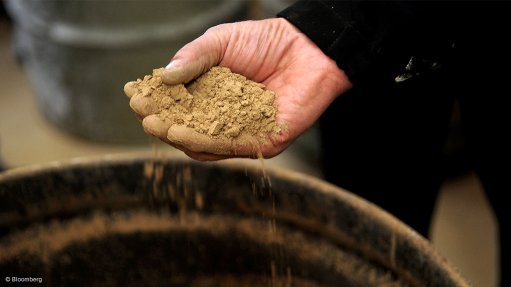
Photo by: Bloomberg
PERTH (miningweekly.com) – A preliminary feasibility study (PFS) of ASX-listed Peak Resources’ Ngualla rare earths project, in Tanzania, has lowered the estimated capital cost by $91-million and added eight years to the mine's life.
A 2013 revised scoping study had estimated that the project would cost $373-million to develop, would have a mine life of around 50 years, and a net present value (NPV) of $1.78-billion.
However, the feasibility study has now found that the project would have a NPV of $1.31-billion and an internal rate of return of 39%, while capital costs have been reduced by 24%, to $282-million. The Ngualla project’s mine life has been increased to 58 years.
The project was expected to deliver 10 000 t/y of rare earths, under the base case development scenario; however, there was room to expand production, once the initial operation and markets have been established, Peak stated.
“We are extremely happy with the results from the prefeasibility study. These show the project to be robust with an extremely long mine life and attractive free cash generation,” said Peak MD Darren Townsend.
He noted that from the detailed work completed to date, Peak had identified opportunities for further operating cost reductions through the optimisation of the processing circuits and additional reagent recycling.
“With the positive outcome of the study, we will step up our discussions with a number of potential strategic financial partners with a view to rapidly progressing the development of the Ngualla project,” Townsend said.
Based on the positive outcomes of the PFS, Peak would move towards a full definitive feasibility study by the third quarter of this year. The completion of the environmental-impact assessment and the application for mining approvals were also scheduled for 2014 and 2015.
Construction of Ngualla was expected to start at the beginning of 2016, with first product expected by July 2017.